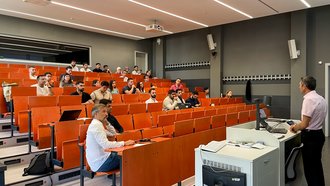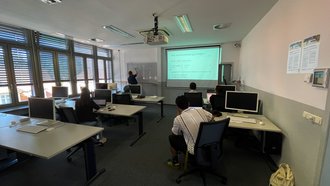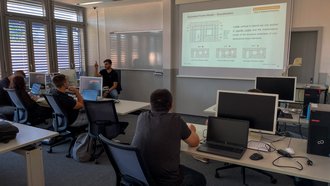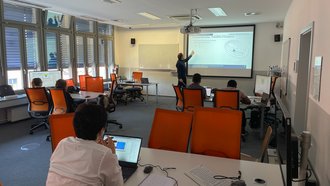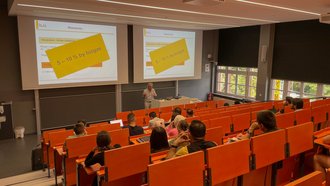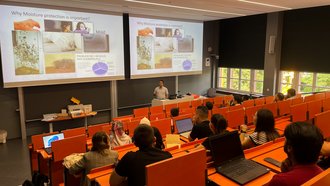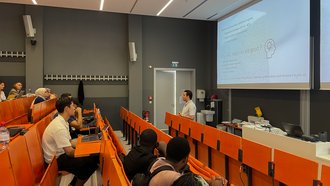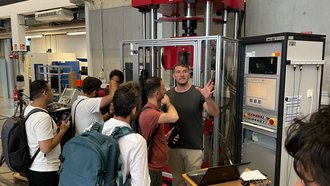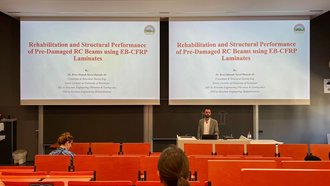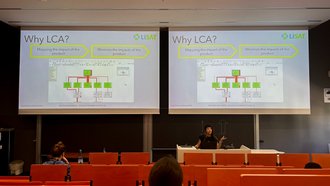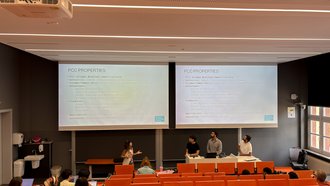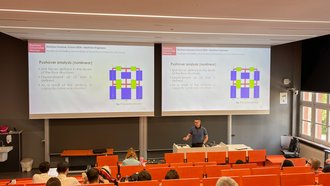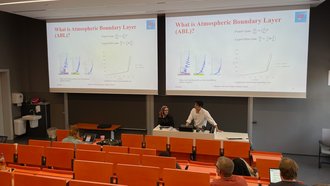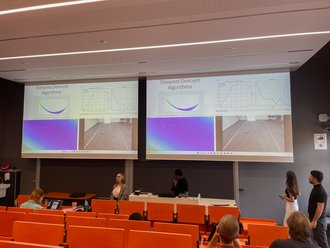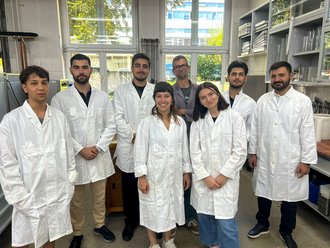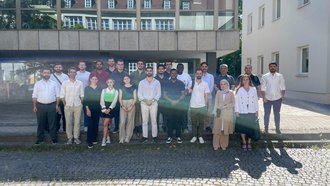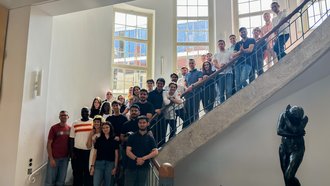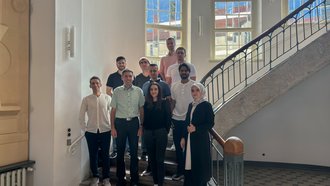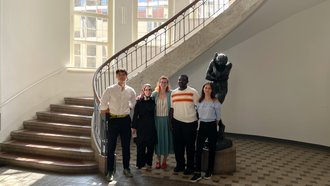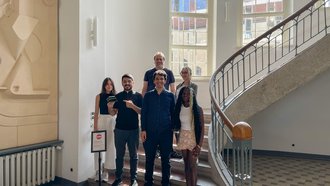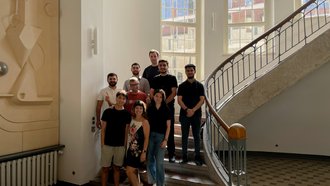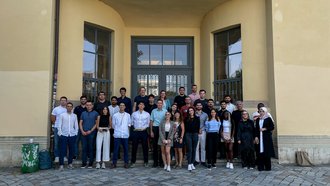NextGen Engineers »Advanced Training Courses for a Sustainable Tomorrow«
In part of the Bauhaus Summer School 2024 specialized courses program for undergraduate and graduate students, the "NextGen Engineers – Advanced Training Courses for a Sustainable Tomorrow" was held from August 17th to 31st, 2024. The course featured four distinct projects and hosted 28 participants from diverse backgrounds, including Brazil, Portugal, United Kingdom, Bulgaria, Croatia, Czech Republic, Egypt, Ghana, Iraq, Pakistan, and Turkey. This two-week intensive course challenged participants to address complex engineering problems using modern tools, with an emphasis on the Sustainable Development Goals (SDGs).
The curriculum focused on specialized civil engineering topics including advanced modeling, simulation, and optimization techniques. Students explored the latest advancements in polymer-modified concretes, wind engineering, and the durability of masonry structures, integrating state-of-the-art design methods to develop innovative, resilient, and sustainable solutions.
The course was a collaborative effort by various chairs from the Faculty of Civil and Environmental Engineering at Bauhaus University Weimar led by the Chair of Advanced Structures. The program also featured guest lecturers from diverse fields, who enriched the learning experience by sharing their expertise and insights, ultimately enhancing the overall quality and depth of each project.
Project 1: Experience Optimization Vividly with Self-Built Robots
Chair of Optimization and Stochastics with support from Chair of Advanced Structures
In this project, participants were introduced to optimization concepts and algorithms for unconstrained optimization. They first implemented these algorithms in MATLAB, experimenting with different parameters that influence algorithm performance on various test functions. Each function presented its own challenges, such as multiple local minima or noise interference.
Students then applied these algorithms to small, self-built robotic cars (rovers), developed as part of the ProTELC Science Camps. By implementing and testing the algorithms on the rovers, the students gained a deeper understanding of how these algorithms operate on different test functions, represented by a virtual landscape projected onto a designated area. This hands-on experience allowed students to program the rovers, address the challenges and constraints of applying theoretical algorithms to real-world scenarios, and enjoy the process.
Project 2: Use of Polymer-Modified Concretes (PCC) for Innovative Refurbishment Solutions
Chair of Construction Chemistry and Polymer Materials and Chair of Mechanics of Engineering
The focus of this project was on the modification of concretes with polymers to enhance durability and adhesive strength, making them ideal for refurbishment applications. Students investigated the microstructural changes in the binder matrix, comprising both cementitious and polymer components, and analyzed how these changes affect macroscopic properties. Laboratory tests on different pure polymer specimens and selected concrete specimens were performed to understand the microscopic origins of macroscopic behavior. A continuum micromechanics approach was used to briefly establish the link between micromechanical and macroscopic properties. The project also covered various innovative restoration applications, showcasing examples of using PCC for constructional purposes.
Project 3: Structural Wind Engineering
Chair of Natural Hazards and Structural Resilience and Chair of Modelling and Simulation of Structures
This project provided a comprehensive introduction to structural wind engineering. Participants learned about the atmospheric boundary layer, wind loads, and their effects on buildings and long-span bridges, including current and next-generation wind design practices. Special emphasis was placed on the design of tall buildings and the phenomenon of vortex-induced vibrations (VIV) in bridges. Knowledge was developed through both classroom lectures and group work in labs, where participants assessed the performance of a high-rise building under life safety and service level wind loads.
Project 4: Nonlinear Modelling and Analysis of Unreinforced Masonry Structures
The project aimed at introducing participants to advanced modeling techniques for the nonlinear analysis of unreinforced masonry (URM) structures with regular and irregular opening layouts. The project work started with the elaboration of existing façade information by transformation into a nonlinear equivalent frame to perform numerical studies. The building capacity and corresponding performance objectives for different seismic acceleration levels were determined. The numerical models were calibrated against the experiment and capacity curves obtained by various authors. The results were summarized by performing a detailed damage prognosis for various ground excitation levels.
For further details, please visit: https://www.uni-weimar.de/de/bau-und-umwelt/professuren/komplexe-tragwerke/lehre/

